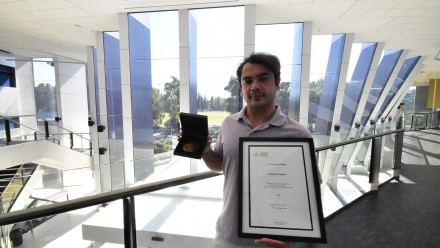Development of a new cancer therapy: Translation of BCL2 inhibition from lab to trial to practice
Professor Andrew Roberts, MB BS, FRACP, FRCPA, PhD, FAHMS, Head of Clinical Translation, Walter & Eliza Hall Institute.
BH3 mimetics have arrived as a new class of anti-cancer therapy in the last few years. They are small molecule drugs which bind and inhibit the function of pro-survival proteins (such as BCL2 and MCL1) that are overexpressed in many cancers, particularly haematological malignancies. The first approved-in-class, venetoclax, is a specific inhibitor of BCL2, and inhibitors of MCL1 and both BCL2 and BCL-xL are in clinical trials. The talk will summarise progress to date from concept through discovery and translation to trials and to registration. Andrew will highlight the clinical impact of venetoclax and the many unresolved translational research questions which must be answered for these new drugs to reach their full potential to benefit patients.
Professor Andrew Roberts is the Head of Clinical Translation at the Walter & Eliza Hall Institute, a clinical haematologist at the Royal Melbourne Hospital and Petermac, Hematology Research and Education Lead, Victorian Comprehensive Cancer Centre and the Metcalf Chair of Leukaemia Research at the University of Melbourne. His major research interests are the development of new treatments for leukaemia, lymphoma and myeloma through translational and clinical research. He has been an academic leader in the clinical development of the novel targeted anti-cancer drug, venetoclax, from the research laboratory through clinical trials to FDA & TGA approval for use in treatment of leukaemia patients. He was President of the Haematology Society of Australia and New Zealand 2005 – 07, and Chair of the board of the Cancer Council Victoria 2013 – 17. He is a director of the Australasian Leukaemia and Lymphoma Group, and a member of Pharmaceutical Benefits Advisory Committee











